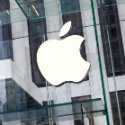Analyst suggests that Apple MVNO rumors are likely true, but that the company will only be offering data service for its iPads and Macs, not iPhones.

In a case of old rumors becoming new again, Apple is in talks to launch a mobile virtual network operator (MVNO) service in both the US and Europe, Business Insider reported on Monday.
Business Insider reporter James Cook [Ed. Note: Tim Cook's British nephew? Nah.] suggests that Apple Inc. (Nasdaq: AAPL) is privately trialing the mobile service in the US, and is in talks with telecom companies in Europe to bring it there as well.
As an MVNO, Apple would wholesale capacity on various operators' wireless networks and sell service directly to consumers, much like FreedomPop , Republic Wireless , Google (Nasdaq: GOOG) and a number of other companies do. (See FreedomPop Gets a $10M Asian Infusion, What the Helio? MVNO Is Back After First Flop and Google's WiFi-First Mobile Service 'Fi' Is Here.)
It could take Apple five years or more to get its MVNO off the ground, if it ever does, Business Insider suggests. But, it says, its plans are moving along now that it's testing iCloud Message, a service to automatically transcribe voicemail messages using Siri, rather than store voicemail services with the wireless operators.
For more on wireless MVNOs, visit the mobile content section here on Light Reading.
Apple MVNO rumors have been circulating for a decade now, resurfacing most recently last year when Apple launched its global SIM to let customers connect to multiple networks, but only on the iPad Air 2 or iPad Mini 3. (See Apple Global SIM Could Drive Connected Cars, iPad Air 2 Lets Users Switch Carriers Any Time and Apple as Mobile Operator?)
Industry consultant Whitey Bluestein has also long believed an Apple MVNO is inevitable, though he sees it shaping up a bit differently to what Business Insider suggests.
Rather than launch a fully fledged wireless service that competes with the wireless operators that sell its iPhone, Bluestein sees Apple selling the connectivity into non-smartphone devices like the iPad and its line of Mac computers. It already makes so much money on its iPhones in the carrier channel that the need to go around them just isn't there.
"To me, adding connectivity to non-phone devices and letting the iPhone juggernaut continue to generate the kinds of profit it does is probably the way for them to optimize their business," Bluestein says.
In this model, Apple would buy data in bulk from wireless operators across the globe and bill for it -- by time used or gigabytes -- through iTunes. This is something it could get up and running immediately if it wanted to, Bluestein says. It already has iTunes as a proven billing mechanism; a patent it filed in 2006 covers its need to use multiple networks; and it has already developed a global SIM.
"I also think they don't upset their carrier relationships if they provide connectivity options outside the carrier roaming areas where data roaming charges are so high," Bluestein adds. "That could be a fairly large business. It's not that a lot of US people travel internationally with iPads, but the ones that do are desperate for options."
— Sarah Thomas, 

 , Editorial Operations Director, Light Reading
, Editorial Operations Director, Light Reading
Read more about:
EuropeAbout the Author(s)
You May Also Like











